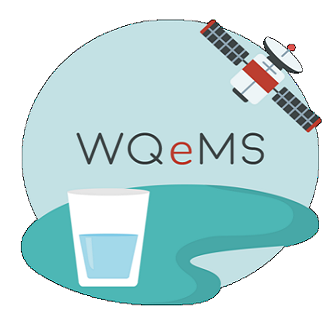
WQeMS
Copernicus Assisted Lake Water Quality Emergency Monitoring Service
Monitoring the extent of the effluents in the lake provides a warning about the risk of water contamination and contributes to impact mitigation strategies, both for the drinking water production and the environmental sustainability.
WQeMS focuses its activities on the monitoring of lakes with the aim to provide an operational Water Quality Emergency Monitoring Service, which enhances our ability to deliver drinking water in all EU member states. The project exploits Sentinel satellite data for quality monitoring at a finer spatial resolution level, following validated processes with in situ data. WQeMS provides extensive information about water quality by building a multi-temporal and high spatial resolution monitoring framework. The goal is the optimization of the use of resources by gaining access to frequent acquired, wide covering and local accurate water-status information, by which citizens will gain a deeper insight and confidence for selected key quality elements of the ‘water we drink’.
The project will address slow evolving phenomena such as geogenic or anthropogenic release of potentially polluting elements that can contaminate freshwater reservoirs, but also the detection of seasonal and annual changes in submerged aquatic vegetation in shallow waters, which is of high value as a quality indicator. The role of MKLab/M4D is to monitor fast evolving phenomena (extreme events), such as algal blooms or flash floods that can spill debris and pollutants into lakes, using Copernicus data and fusing with crowdsourced data when possible.


